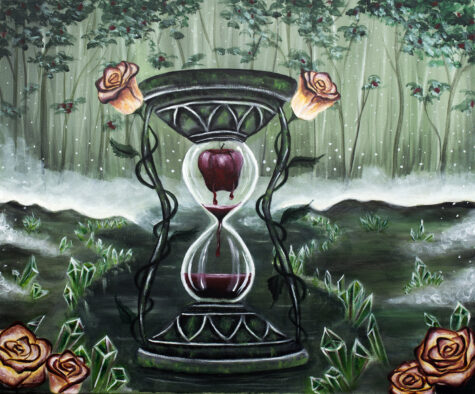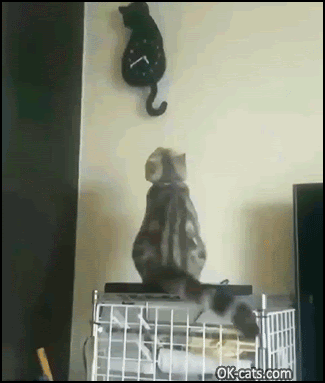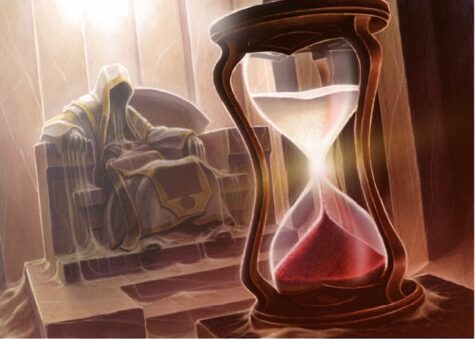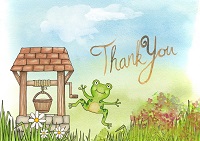Time
How To Really Slow Time Down
Here’s a nice little article that I found really thought provoking. It speaks to how our perception of time seems to speed up as time goes by, why that happens, and what we can do to slow things down. Very interesting.
What we remember as “life” is the aggregation of our various experiences and moments that stretches from childhood to old age. While the minute-by-minute sensations are forgotten, the key moments and experiences — that jolt, change, delight or elevate us — remain long in the memory.
However, a fact of our “remembering” is that not all moments or experiences are remembered equally. Some experiences leave a lasting impression while others don’t. An experience of 10 years ago leaves a more lasting memory compared to one of 8 months ago.
And a strange fact is that we tend to remember more from late adolescence and early adulthood than from any other time in our lives. Various scientific studies have shown that experiences of adolescence to early adulthood tend to take an outsized chunk of our memories. This phenomenon has been called the “reminiscence bump.”
Of this phenomenon, 19th century British Poet Robert Southey wrote:
“Live as long as you may, the first twenty years are the longest half of your life. They appear so while they are passing; they seem to have been so when we look back on them; and they take up more room in our memory than all the years that succeed them.”
Why is that?
The Magic of First Moments
Scientists found that the human brain transcribes novel experiences better than mundane ones. For instance, a 1988 study found that 93% of vivid life memories concern unique or first-time events.
Therefore, the reminiscence bump seems to coincide neatly with the period of life that are stuffed with “firsts” (first relationship, first job, first time driving, first kiss, first child, first time leaving home, first time learning a skill). What happens is that the novelty of these “first moments” create such rich memories that the time of high school, college, and university appears to last forever.
Author Joshua Foer, in Moonwalking with Einstein: The Art and Science of Remembering Everything, writes that adolescence and early adulthood is
“the period that’s the most varied and exciting, that’s when you’re hitchhiking across the country, going on lots of dates, having interesting encounters and learning about things for the first time.”
“You’re going to remember your trip hiking across Peru”, Foer explained, “more that the year you spend sitting in your office doing the same job you’d been doing for the past five years.”
Indeed, most of us know the feeling well, how four years during your forties feel like it zoomed by in a flash. As we grow up and our lives get busier, time seem to fly by faster and faster. But of course, we know time is moving at the same rate as it did during adolescence when the days seemed to stretch out infinitely. So what changed?
Our perception of time.
How We Perceive Time
David Eagleman, a neuroscientist who extensively studied our brain’s perception of time, calls time a “rubbery thing” that changes based on novelty and mental engagement. His profile in the New Yorker, written by Burkhard Bilger, explained:
“This explains why we think that time speeds up when we grow older,” Eagleman said — why childhood summers seem to go on forever, while old age slips by while we’re dozing. The more familiar the world becomes, the less information your brain writes down, and the more quickly time seem to pass. “Time is this rubbery thing…it stretches out when you really turn your brain resource on, and when you say, ‘Oh, I got this, everything is as expected,’ it shrinks up.”
Our brains process familiar information quickly. But when new information is introduced, it takes our minds longer to organize and synthesize the data, making the experience more memorable. The memories made from fresh and exciting experiences are so dense and vivid that they create the perception that time is slowing down.
So, as it happens, the novelty of the “first moments” of early adulthood — where almost everything seems varied, new and novel — (appears to) slow down time and create rich memories. On the other hand, as we get older and get into the rut of routine and fall into predictable patterns with little or no pattern interruption, time (appears to) speed by.
So, how can we apply this knowledge to ‘slow down time’, break life’s monotony and create more enriching life memories?
1. Learn New Things
Learning is said to be “from cradle to the grave” but it’s only so in theory for many people. Many never pick up a book after college, or venture to learn a new skill long after traditional formal education is over. They settle into a comfortable stale routine from which they never escape.
The key however is to never stop learning. Actively seek to be a student of life. Come at everyday with your mind open, ready to squeeze all the learning you can get. There’s a whole lot to learn and life never stop teaching, if we never stop learning.
Go out of your way to harness the magic of more first moments. Read new things, ask questions, try new activities, learn to play a new instrument, cook a new recipe for dinner…
As a child and young adult, you asked questions about everything, you wondered about a lot. And even now at 30 or 50, life continue to reveal it’s beauty if you don’t lose your sense of wonder or stop asking questions.
Life is short, yes, but when you harness the power of first moments, frequently thrusting into the unfamiliar, doing and learning something new everyday, you can make it feel much longer.
2. Visit New Places
Few things have the power to snap us out of life’s monotony or push learning into overdrive than visiting places we’ve never been to before.
When you find yourself treading in the unfamiliar, you tend to pay more attention. And that’s the beauty of it. Your brain is alert, your senses are heightened, you take in new sensations at a rapid rate — you are truly present.
Visiting new places gives your brain the much needed stimulation and you’re forced to break old patterns. You can learn about different cultures, visit places of historical significance, meet wonderful interesting people in a way you’ll never be able to if you’re just reading from a book.
Sometimes visiting new places might not even mean traveling halfway around the world. Even simple things like exploring more of your immediate surrounding, taking new route to work counts, being more aware or conscious of your immediate surroundings helps you create those beautiful, longer-lasting memories.
3. Meet New People
Meeting new people is to come face to face with someone who has experienced life differently than you. Our experiences, memories, perception, worldview are all different. Thus, coming together can be a wellspring of new learning opportunities in a way we might not have even imagined.
And here’s a fact: everybody has something to teach us — even if what not to do.
Meeting new people forces us to slow down, to make more effort to process and understand a different perspective and makes sense of new things like names, facial features, body language, accents etc. And the potential is almost endless: new possibilities, lifelong friendship, and ample learning opportunities.
Summing It Up
What’s the common thread through this examples? Experiencing something new, different, novel. Because the truth is, it’s easy to settle into a routine where life becomes a blur, a hamster wheel of repetition — which tend to make it speed away from us.
The key to slow it down and enjoy enriching experiences is to intersperse routine and predictable patterns with randomness and novelty.
- Try new things.
- Do new things.
- Learn new things.
- Meet new people.
- Visit new places.
That’s how to slow down time and create new meaningful and long-lasting memories.
Source: Jude King
Is It Time For Magick?
If you want to try your hand on time spells and move time faster when you are in a situation you don’t like and move it slower or stop it altogether when you are in a situation that you would like to prolong, these simple spells might be something to try.
Speeding Up Time
This spell is designed to make time fly, or at least feel like it is. Begin by outlining your altar with roses to form a circle. Next, light three candles and place them upon your alter. Cast your magick circle and repeat the following words:
“Father time by these candles three,
make my days, hours and minutes flee.
I cannot wait as the candles burn.
Time, time, quickly turn.”
If the candles are blown out, assume that your spell worked. If not, repeat the process at a later time until they do.
Slowing Time Down
Draw a Pentacle on your right hand with a blue pen. Visualize a sand clock as you draw with the sands falling slower, say:
Core go round,
power be bound,
interrupt the nature’s course,
time slow down,
I cast the spell
I say these words.
The spell will last for 24 hours or until the pentacle is erased, naturally or washed, so try not to get sweaty hands.
Freezing Time Spell
Draw a Pentacle on both hands. Clear your mind of all thoughts. This is essential for any and all spells to work well. Concentration on the task at hand is essential always and always. Chant the following:
“I call forth the goddess of time.
While the time is going by.
By second, minute, hour and day.
Bring it up as I say!
Bring the time up on my mental screen,
I call forth the goddess of time,
So mote it be!”
At this point you will be able to do with time as you wish. Freeze it, speed it up, move it forward or back.
Disclaimer
As usual, the more powerful you are, the more powerful the spell is. If you haven’t spent enough time practicing and studying, your spells won’t work. You must develop natural inner power in order for this freezing time spell to work. Learn as much as you can. If you are trying to jump in and do this spell with no experience, no work, no study, and no practice, chances are very good it will not work. You have to develop respect from the elemental spirits in order for these spells to work.
Again, the key to success with this freezing time spell is your natural power and inner skill. The only way to develop this power is through practice and study. The more spells and rituals you do, and the more study you do, the more in alignment you become with the natural magical forces of the universe. Then, and only then, will you be powerful enough to cast a freezing time spell.
Sources:
Frittering My Time Away
I just spent a fair amount of time trying to figure out what to talk about or share next. And in the process, I did a substantial amount of frittering about online and on my phone. And then, suddenly, voila! I found this little piece from the Chicago Tribune! It is cute and fun, and looks delicious.
Frittering away a fall afternoon
Fritters fritter away so little time. Thirty minutes to prep. Two minutes to crisp. One to munch. Thirty-three minutes isn’t frittering. That’s practically staying on task.
There are more effective fritterers than fritters. Consider the Internet, designed to delete whole afternoons. Or the leaf-dropping tree, capable of raking up an entire weekend. Or the World Serious, which requires the seriously observant to slump on the couch for a week, staring morosely and mumbling: “Bad call.”
The fritter, by comparison, is a fleeting distraction. All it requires is mashing cheese, shaping balls, then rolling them in flour, egg and breadcrumb. The triple jacket ensures a crisp outside and melting inside.
Hot from the pan-fry, the fritter goes nicely with a fall salad. It’s a pleasant diversion from computer, rake or couch. And always a good call.
Ricotta fritters
Prep: 30 minutes
Cook: 2 minutes per batch
Makes: 16 fritters (enough to accompany 4 servings of salad)
Ingredients:
- 1 clove garlic
- 3 slices white sandwich bread
- Kosher salt
- 3/4 cup flour
- 1 egg beaten with 1 teaspoon water
- 4 ounces mild goat cheese
- ½ cup whole-milk ricotta cheese*
- Finely grated zest of 1 lemon
- 1 tablespoon snipped fresh chives
- 1 teaspoon fresh thyme leaves
- ¼ teaspoon freshly ground black pepper
- 2 tablespoons unsalted butter
- 2 tablespoons olive oil
Note: *Ricotta should be firm. Pour off any visible liquid. If ricotta seems very soft, drain in a cheesecloth-lined colander for 1 hour.
Grind: With food-processor running, drop garlic down the chute, buzzing it to bits. Break up bread and add to food processor along with a pinch of salt. Grind to fine fluffy crumbs.
Prep: Line up three plates: One holding flour, one holding egg mix and one holding the breadcrumbs.
Mash: Drop both types of cheese into a clean food processor. Swirl smooth. Briefly pulse in zest, chives, thyme, pepper and 1/8 teaspoon salt.
Shape: Use a 1 1/4-inch ice-cream scoop (or a tablespoon) to scoop cheese mix into balls. Drop the balls first in the flour, rolling to coat; then in the egg, rolling to coat; then in the crumbs, rolling to coat. Pat each ball into a disk, about 1 1/2-inches across and ½-inch thick. Let rest, uncovered, 15 minutes.
Crisp: In a heavy skillet, melt butter into oil over medium. Scatter in a pinch of salt. Add cheese pucks without crowding. Crisp to a golden brown, about 1 minute per side. Drain on paper towels. Repeat with remaining pucks.
Serve: Serve fritters alongside any salad. Enjoy.
Provenance: Inspired by TWO Restaurant, Chicago.
Time Lords
So far we’ve talked a lot about time, and how we might possibly be frittering it away even though we don’t have all that much of it. Serious stuff! So let’s finish up all this serious talk, with something fun!
It’s a Time Lord Name Generator. How fun is that?
My Time Lord Name is: The Poet AKA Dundrollbygotheneeldri
You are known as The Poet. Your original Gallifreyan name is Dundrollbygotheneeldri or Dundroll for short.
Back on Gallifrey, you led a dull and uninteresting life, working as a Deputy Assistant to the Assistant Deputy at the Prydon Academy – but now, you travel Time and Space in search of adventure!
Your Type 66 TARDIS is currently stuck in disguise as a Sherman tank, and your latest travelling companion is a gritty, cynical newspaper journalist from the 1990s, who discovers the universe is weirder and wilder than he ever expected.
I like it! The next time I start to worry about time and now there’s not enough of it, whenever I realize that I am wasting time, or allowing corporate America to steal my time… I’m going to remember that in some alternate reality, I have a Type 66 Tardis and my Time Lord Name is Dundroll… This is going to make me smile and then I will be able to let all that worry go and just enjoy the moment even if that moment is boring or uncomfortable.
If you are a Dr Who fan, you’ll totally get this, if not…
Here’s an explanation:
The Time Lords were first created in 1969 by writers Malcolm Hulke and Terrance Dicks, in ‘The War Games’, Patrick Troughton’s final story as the Second Doctor. The Doctor’s home planet was first named as Gallifrey in 1973 in the story ‘The Time Warrior’, written by Robert Holmes.
Since then, the mythos of Gallifrey has expanded in a massive number of ways thanks to stories like The Deadly Assassin, ‘The Invasion of Time’, ‘Arc of Infinity’ and ‘The Trial of a Time Lord’, and we’ve tried to use as much detail from the classic shows and from various spin-off novels as possible in creating the Time Lord names.
The Biology of the Time Lords
Time Lords are the elite of the planet Gallifrey in the constellation of Kasterbouros, and they are super-intelligent beings who can live for thousands of years (although not all Gallifreyans are Time Lords). They appear human, but have many physiological differences – Time Lords have two hearts, an internal temperature of only 15 degrees Centigrade, and a respiratory bypass system that protects them from suffocation and strangulation.
They also have the power of regeneration, meaning they can completely transform their appearance and personality twelve times, although certain Time Lords have found ways of extending their lives and even acquiring new regeneration cycles.
The History of the Time Lords
The Time Lords jealously guarded the secrets of Time Engineering that were bequeathed to them by the legendary pioneers Omega and Rassilon, and for thousands of years they have kept to a strict rule of non-interference with other races, only observing the outside universe and never getting involved.
Secretly, organizations such as the Celestial Intervention Agency have been regularly breaking this rule, most notably in their attempt to persuade the Doctor to commit genocide by wiping out the Daleks before they were created, long held to be the opening strike of the cataclysmic Time War.
Time Lord Society
Much of Time Lord society is aloof and stagnant – power lies with the High Council, ruled by the Lord President and the principle colleges, where it only matters whether you are a member of the Prydonian, Arcalian or Patrexe chapters.
Bureaucracy and order rule the day, while many secrets are hidden away in the computer system known as the Matrix, where the combined intelligences of generations of deceased Time Lords can create a whole virtual universe of dreams and nightmares.
Gallifrey is a frustrating, dull place to live – so it’s no wonder that you’ve finally had enough and are stealing a TARDIS so that you can escape and travel the universe!
About Time Lord Names
Our Doctor Who inspired generator will not only give you a new identity as a renegade Time Lord, but you’ll also get your full Gallifreyan name (and its shortened version), what you used to do before you escaped your home planet for a life of adventure, the current disguise of your stolen TARDIS, and a companion to travel with you!
So how about it? Are you going to check out the Time Lord Name Generator? If you do, I’d really love to know your Time Lord Name!
Time Thieves
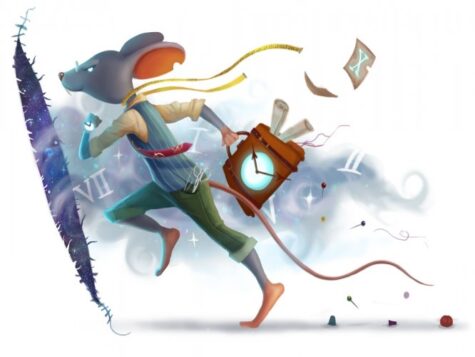 In our so-called ‘Age of Distraction’, it feels almost impossible to stop getting distracted. The world around us – and the usual suspects of our phones, emails, and other technologies – seem to be vying for our attention. And doing all in their power to stop us focusing.
In our so-called ‘Age of Distraction’, it feels almost impossible to stop getting distracted. The world around us – and the usual suspects of our phones, emails, and other technologies – seem to be vying for our attention. And doing all in their power to stop us focusing.
Just like a thief, time thieves are sneaky, secretive and take what is valuable to us without us knowing.
If we want to get our time, attention and energy back for the things we find important, we need to start by looking at our relationship with our phones. These are the biggest ‘Time Thieves’ around. Other Time Thieves might include one or more of the following:
- YouTube
- Social Media
- Television
- Video Games
For me, my phone with it’s various games, apps, and the ever present Facebook is the worst offender. This is closely followed by YouTube, google, and mindless television. What do your personal Time Thieves look like?
Making Time Thieves Work For Me
There are lots of articles all over the internet on how to deal with distractions, some are more useful than others. I’m not going to bore you with them here. Instead I’m going to talk about what has actually been working for me:
- Games On My Phone
There’s this silly little game on my phone called Township. I somehow got totally entangled in it to the point of ridiculousness. Then I had this brilliant idea that I couldn’t play it unless I was on my treadmill. Perfect! I haven’t missed a single day of exercise for 2 months.
- Mindless Television
At some point during the lockdown, I got hooked on Court TV… Really? Yes! I have no clue why I find it so interesting, but I really do enjoy watching the trials live. It has an added bonus of keeping me grounded in the here and now because it’s actual people, live in the moment. And what I’ve discovered is that it’s way easier for me to wash dishes, get the laundry put away, and do little household chores if I am also watching a trial unfold.
If Court TV doesn’t have anything going on that interests me, sometimes I can find other fun stuff like Storm Chasers, The Great British Baking Show, or documentary shows about natural disasters, plane crashes, ships that sank in a spectacular way. It takes the boredom out of the more tedious activities that nag at me to get done.
More recently, I’ve been using Facebook to help me get the Prosperity Project posts wrangled and uploaded. I made a deal with myself that I could stay off of Facebook all the way up to and until I get something finished and scheduled on the website.
When I had to go out to my car and scrape all the ice off the windshield and warm it up, I told myself that this would be a perfect time to scroll through Facebook. The whole ordeal of sitting in a cold car while it warmed up was made more palatable with the addition of checking out all the “new” stuff my “friends” were talking about.
- Arts and Crafts
It occurs to me that it’s possible that art is one of my favorite distractors. I don’t think it’s a Time Thief, but I do think that I use it to totally disappear from the here and now and slide into a whole other world. What’s great about it is that I can make a bunch of cool stuff to give away as gifts, or put online for sale as a way to make a little bit of extra cash. Plus it’s fun and rewarding, much better than scrolling through my news apps or sitting and staring at a stupid television show.
Knitting gives my hands something to do when I find myself snacking all night long. Munching on junk food isn’t necessarily a time thief, but it isn’t good for me either, and I find that knitting effectively interrupts my need to keep putting stuff in my mouth.
Now It’s Your Turn
What are your most familiar Time Thieves? When and where are you most bored and uncomfortable? How do you cope with it? What if you just sat with it and faced it? How can you use your personal Time Thieves to your advantage? What are your triggers? When are you most likely to let those Time Thieves in?
Getting Distracted
This is an edited extract from Four Thousand Weeks by Oliver Burkeman. It’s kind of long, and I did try to break it up into shorter, easier to read pieces. As you can see, I did not succeed. It’s a great article though, and well worth the time spent reading it. I’ve decorated it with some cute cat gifs because.. well… they’re distracting and fun which might help with the long read.
It hardly matters how committed you are to making the best use of your limited time if, day after day, your attention gets wrenched away by things you never intended to focus on.
Distraction truly matters – because your experience of being alive consists of nothing other than the sum of everything to which you pay attention. At the end of your life, looking back, whatever compelled your attention from moment to moment is simply what your life will have been. When you pay attention to something you don’t especially value, it’s not an exaggeration to say that you’re paying with your life.
This was why Seneca, in On The Shortness Of Life, came down so hard on his fellow Romans for pursuing political careers they didn’t really care about, holding elaborate banquets they didn’t especially enjoy, or just “baking their bodies in the sun”: they didn’t seem to realize that, in succumbing to such diversions, they were squandering the very stuff of existence.
Seneca risks sounding like an uptight pleasure-hater – what’s so bad about a bit of sunbathing? – and, to be honest, I suspect he probably was. But the crucial point isn’t that it’s wrong to choose to spend your time relaxing, whether at the beach or on BuzzFeed. It’s that the distracted person isn’t really choosing at all. Their attention has been commandeered by forces that don’t have their highest interests at heart.
All of which helps clarify what’s so alarming about the contemporary online “attention economy”, of which we’ve heard so much in recent years: it’s essentially a giant machine getting you to care about things you didn’t want to care about. And you have far too little control over your attention simply to decide, as if by fiat, that you’re not going to succumb to its temptations.
Social Media
Social media is engineered to constantly adapt to our interests. No wonder the rest of reality seems unable to compete.
Many of us are familiar with the basic contours of this situation. We know that the “free” social media platforms we use aren’t really free, because, as the saying goes, you’re not the customer but the product being sold. In other words, the technology companies’ profits come from seizing our attention, then selling it to advertisers.
You might also be aware that this is delivered by means of “persuasive design” – an umbrella term for an armory of psychological techniques borrowed directly from the designers of casino slot machines, for the express purpose of encouraging compulsive behavior.
One example among hundreds is the ubiquitous drag-down-to-refresh gesture, which keeps people scrolling by exploiting a phenomenon known as “variable rewards”: when you can’t predict whether or not refreshing the screen will bring new posts to read, the uncertainty makes you more likely to keep trying, again and again and again, just as you would on a slot machine.
What’s far less widely appreciated, though, is how deep the distraction goes, and how radically it undermines our efforts to spend our finite time as we’d like. As you surface from an hour inadvertently frittered away on Facebook, you’d be forgiven for assuming that the damage, in terms of wasted time, was limited to that single misspent hour.
But you’d be wrong. Because the attention economy is designed to prioritize whatever’s most compelling – instead of whatever’s most true, or most useful – it systematically distorts the picture of the world we carry in our heads at all times. It influences our sense of what matters, what kinds of threats we face, how venal our political opponents are – and all these distorted judgments then influence how we allocate our offline time as well.
If social media convinces you, for example, that violent crime is a far bigger problem in your city than it really is, you might find yourself walking the streets with unwarranted fear. If all you ever see of your ideological opponents online is their very worst behavior, you’re liable to assume that even family members who differ from you politically must be similarly, irredeemably bad, making relationships with them hard to maintain.
So it’s not simply that our devices distract us from more important matters. It’s that they change how we’re defining “important matters” in the first place. In the words of the philosopher Harry Frankfurt, they sabotage our capacity to “want what we want to want”.
I vividly recall walking alone along a windswept Scottish beach as dusk began to fall, when I experienced one particularly disturbing side-effect of persuasive design, which is the twitchiness you start to feel when the activity in which you’re engaged hasn’t been crafted by a team of professional psychologists hellbent on ensuring that your attention never wavers.
I love windswept Scottish beaches at dusk more passionately than anything I can ever remember encountering on social media. But only the latter is engineered to constantly adapt to my interests and push my psychological buttons, so as to keep my attention captive. No wonder the rest of reality sometimes seems unable to compete.
To make things more troublesome still, it can be difficult even to notice when your outlook on life is being changed in this depressing fashion, thanks to a special problem with attention, which is that it’s extremely difficult for it to monitor itself.
The only faculty you can use to see what’s happening to your attention is your attention, the very thing that’s already been commandeered. This means that once the attention economy has rendered you sufficiently distracted, or annoyed, or on edge, it becomes easy to assume that this is just what life these days feels like. In TS Eliot’s words, we are “distracted from distraction by distraction”.
The unsettling possibility is that if you’re convinced that none of this is a problem for you – that social media hasn’t turned you into an angrier, less empathic, more anxious or more numbed-out version of yourself – that might be because it has. Your finite time has been appropriated, without you realizing anything’s amiss.
As the technology critic Tristan Harris likes to say, each time you open a social media app, there are “a thousand people on the other side of the screen” paid to keep you there – and so it’s unrealistic to expect users to resist the assault on their time and attention by means of willpower alone.
Yet if we’re to understand distraction at the deepest level, we’ll also have to acknowledge an awkward truth at the bottom of all this, which is that “assault” – with its implications of an uninvited attack – isn’t quite the right word.
We mustn’t let Silicon Valley off the hook, but we should be honest: much of the time, we give in to distraction willingly. Something in us wants to be distracted, whether by our digital devices or anything else – to not spend our lives on what we thought we cared about the most. The calls are coming from inside the house.
Why Do We Want To Be Distracted?
Consider the archetypal case of being lured from your work by social media: it’s not usually that you’re sitting there, concentrating rapturously, when your attention is dragged away against your will. In truth, you’re eager for the slightest excuse to turn away from what you’re doing, in order to escape how disagreeable it feels to be doing it; you slide away to the Twitter pile-on or the celebrity gossip site with a feeling not of reluctance but of relief.
“One of the puzzling lessons I have learned,” observes the American author Gregg Krech, describing his own experience of that urge, “is that, more often than not, I do not feel like doing most of the things that need doing. I’m not just speaking about cleaning the toilet bowl or doing my tax returns. I’m referring to those things I genuinely desire to accomplish.”
It’s worth pausing to notice how exceptionally strange this is. Why, exactly, are we rendered so uncomfortable by concentrating on things that matter – the things we thought we wanted to do with our lives – that we’d rather flee into distractions, which, by definition, are what we don’t want to be doing with our lives? So that suddenly, the thing you’d resolved to do feels so staggeringly tedious that you can’t bear to focus on it for one moment more.
The solution to this mystery, dramatic though it might sound, is that whenever we succumb to distraction, we’re attempting to flee a painful encounter with our finitude – with the human predicament of having limited time and, more especially in the case of distraction, limited control over that time. When you try to focus on something you deem important, you’re forced to face your limits, an experience that feels especially uncomfortable precisely because the task at hand is one you value so much.
This is also why boredom can feel so surprisingly, aggressively unpleasant: we tend to think of it as not being interested in whatever it is we’re doing, but, in fact, it’s an intense reaction to the deeply uncomfortable experience of confronting your limited control.
Boredom can strike in widely differing contexts: when you’re working on a major project; when you can’t think of anything to do on a Sunday afternoon; when it’s your job to care for a two-year-old for five hours straight. But they all have one characteristic in common: they demand that you face your finitude. You’re obliged to deal with how your experience is unfolding in this moment, to resign yourself to the reality that this is it.
No wonder we seek out distractions online, where it feels as though no limits apply – where you can update yourself instantaneously on events taking place a continent away, present yourself however you like, and keep scrolling forever through infinite news feeds, drifting through “a realm in which space doesn’t matter and time spreads out into an endless present”, to quote the critic James Duesterberg.
This also makes it easier to see why the strategies generally recommended for defeating distraction – digital detoxes, personal rules about when you’ll allow yourself to check your inbox, and so forth – rarely work, or at least not for long. They limit your access to the things you use to assuage your urge towards distraction, but they don’t address the urge itself.
Even if you quit Facebook, or ban yourself from social media during the workday, or exile yourself to a cabin in the mountains, you’ll probably still find it unpleasantly constraining to focus on what matters, so you’ll find some way to relieve the pain by distracting yourself: by daydreaming, taking an unnecessary nap, or – the preferred option of the productivity geek – redesigning your to-do list and reorganizing your desk.
What we think of as distractions aren’t the cause of our being distracted. They’re just the places we go to seek relief.
The overarching point is that what we think of as distractions aren’t the ultimate cause of our being distracted. They’re just the places we go to seek relief from the discomfort of confronting limitation. The reason it’s hard to focus on a conversation with your spouse isn’t that you’re surreptitiously checking your phone beneath the dinner table.
On the contrary, “surreptitiously checking your phone beneath the dinner table” is what you do because it’s hard to focus on the conversation – because listening takes effort and patience and a spirit of surrender, and because what you hear might upset you.
Even if you place your phone out of reach, therefore, you shouldn’t be surprised to find yourself seeking some other way to avoid paying attention. In the case of conversation, this generally takes the form of mentally rehearsing what you’re going to say next, as soon as the other person has finished making sounds with their mouth.
So What Can We Do About It?
I wish I could reveal, at this point, the secret for uprooting the urge towards distraction – the way to have it not feel unpleasant to decide to hold your attention, for a sustained time, on something you value, or a task you can’t easily choose not to do. But the truth is that I don’t think there is one.
The most effective way to sap distraction of its power is to stop expecting things to be otherwise – to accept that this unpleasantness is simply what it feels like to commit ourselves to the kinds of demanding and valuable tasks that force us to confront our limited control over how our lives unfold.
And yet there’s a sense in which accepting this lack of any solution is the solution. The way to find peaceful absorption in a difficult project, or a boring Sunday afternoon, isn’t to chase feelings of peace or absorption, but to acknowledge the inevitability of discomfort, and to turn more of your attention to the reality of your situation than to railing against it.
Some Zen Buddhists hold that the entirety of human suffering can be boiled down to this effort to resist paying full attention to the way things are going, because we wish they were going differently (“This shouldn’t be happening!”), or because we wish we felt more in control of the process.
There is a very down-to-earth kind of liberation in grasping that there are certain truths about being a limited human from which you’ll never be liberated. You don’t get to dictate the course of events. And the paradoxical reward for accepting reality’s constraints is that they no longer feel so constraining.
Seeds For Thought
Yesterday I spent a little bit of time talking about time … this morning I’m floundering around unsure about where to take us next, so I’m going to share some of the thoughts I had during my morning meditation.
It occurred to me that time is like a seed, it starts out compressed and organized and then it explodes into something that cannot and will not ever be put back into that tight little package.
This is also a perfect example of how life might work. In the beginning, before we are born, maybe we are just an idea, a tight little package, neatly organized and full of possibilities. And then we get planted. And with the right conditions, just like a seed, our experience of life explodes just a little bit and a tiny root begins to extend out and down looking for nourishment and a home base. At the same time, we begin to extend up and out reaching for possibilities, the larger world. And there’s this huge drive to be more than we are right now, an irresistible push to expand and grow and be everything we can be.
So this brings up lots of interesting questions:
- Who has the original idea?
- Is there a larger me out there in the void of the unknown?
- Who really plants that little seed?
- Is there any way to look out past the known world and see the larger picture?
- Could I possibly be a random thought? Unfinished and unplanned?
If we take this metaphor a little further, we realize that it really does matter what family you were born into, and where, and when. For example, last year I planted an ambitious container garden. I went to the greenhouse and bought a bunch of flowers and herbs. I just got the ones I wanted without paying any attention to how big they would get, or what sort of sunlight and soil they might need to thrive.
Here’s what happened.
The mint grew like crazy! I don’t know who ate the carnations, but they were the first to go. Rabbits munched away on the impatiens but they managed to hold their own for quite a while, unlike the marigolds which surprised me by disappearing rather quickly. The lavender loved her spot, and did really well.
The coleus turned into a huge giant that totally overpowered the patchouli. He was really pretty, but he was also kind of a bully. Some of the scented geraniums did really well, others not so much. The rose bush was spectacular. The dahlia’s sprawled all over the place, made some really wonderful flowers, and then suddenly died.
I didn’t think the wildflower seeds I planted would ever grow, and when they finally did they were weak and spindly and only 2 zinnias and a handful of cosmos survived. My morning glories were beautiful, but they had a hard time figuring out what to grow up onto and tended to get into a tangled mess.
Clearly it matters not only where you are planted but who you are planted next to, and obviously stuff will happen like too much rain, 105 degree heat, hail storms, ice and snow, rabbits, mice, and deer. This sounds a lot like life to me.
Who are you in the Garden of Life?
I’ve always thought that if I was a flower, I’d be a Morning Glory, climbing all over stuff, blooming in the sun, dropping seeds all over the place. Then come winter, the first hard freeze, and I’m out of here. If I was a tree, I’d be a Hedge Tree… strong, old, gnarly, prickly, maker of a messy fruit that dinosaurs loved but no one else cares for too much.
I also feel that I was fortunate in that I was planted in a family, a time, and a place that made me strong and forced me to reach really deep, and hold really tight to what matters.
Something To Think About
What about you? If you were a plant, what kind of a plant would you be?
What if if this metaphor about life and seeds is true, does this mean that I cannot change my essential nature any more than a weakly cosmos could become a big strapping coleus? And would I even want to? Does the cosmos even think once about how it wishes it could be mint? or a morning glory? or a rosebush? And even if it did, what would be the point? It is what it is. Right?
And does this mean that I am who I am because I am who I am and that I will not change into someone else no matter how much I might want it to? Does it also mean that it might not be my fault if I don’t thrive and grow in the directions that I feel I should be thriving and growing? That circumstances and situations might have a limiting effect on my aspirations, goals, hopes, and dreams?
My little flowers and herbs did their absolute best to grow and thrive in the environment I gave them. And that’s what we do, right? Even when our best isn’t quite good enough, even when circumstances beat us down, even when we know we are doomed to failure, we still keep on keeping on being us… being our essential selves, because that’s who we are, and how can we be anyone else?
Moving Forward
Yesterday we talked a little bit about time. Specifically how much time we might possibly have to live the rest of our lives with. So, I started wondering about time… what is it really?
We talk about “taking time out,” “wasting time,” “more time,” “time stood still”… as if time is a thing, a commodity, and yet we do actually know (at least most of us know) that this isn’t actually true. Time seems to be more of a measurement, a flow, an experience, a construct, and arbitrary way to keep track of whatever it is we want to keep track of.
Lets Get Scientific:
I was really curious about time, so I did a little bit of research over at Live Science. This is what I came away with:
In the 17th century, physicist Isaac Newton saw time as an arrow fired from a bow, traveling in a direct, straight line and never deviating from its path. To Newton, one second on Earth was the same length of time as that same second on Mars, Jupiter or in deep space.
However, in 1905, Albert Einstein asserted that time was more like a river, ebbing and flowing depending on the effects of gravity and space-time. Time would speed up and slow down around cosmological bodies with differing masses and velocities, and therefore one second on Earth was not the same length of time everywhere in the universe.
Newton and Einstein did agree on one thing, though — that time moves forward. So far, there is no evidence of anything in the universe that is able to dodge time and move forwards and backward at will. Everything ultimately moves forward in time, be it at a regular pace or slightly warped if approaching the speed of light.
But why does time tick forward?
Scientists aren’t certain, but they have several theories. One of these brings in the laws of thermodynamics, specifically the second law. This states that everything in the universe wants to move from low to high entropy, or from uniformity to disorder, beginning with simplicity at the Big Bang and moving to the almost random arrangement of galaxies and their inhabitants in the present day. This is known as the “arrow of time,” or sometimes “time’s arrow.”
Eddington suggested that time was not symmetrical: “If as we follow the arrow, we find more and more of the random element in the state of the world, then the arrow is pointing towards the future; if the random element decreases, the arrow points towards the past,” he wrote in “The Nature of the Physical World” in 1928.
Another theory suggests that the passage of time is due to the expansion of the universe. As the universe expands, it pulls time with it, as space and time are linked as one; but this would mean that if the universe were to reach a theoretical limit of expansion and begin to contract, then time would reverse — a slight paradox for scientists and astronomers.
Would time really move backward, with everything coming back to an era of simplicity and ending with a Big Crunch? It’s unlikely we will be around to find out, but scientists can postulate on what might happen.
Something to contemplate:
- How does time work for you?
- Does your life move forward as if shot from an arrow?
- Or is your life more of a meandering river?
What about a Big Bang? Boom! And everything explodes increasingly out of control? This tends to be my experience. I’d love to hear your thoughts!
Oh and speaking of time… our Countdown Timer Widget has gone wonky and says we have 911 days for this project? Does it know something I don’t know? What the heck?
Something Scary
Now for the real challenge the scariest thing I’m going to suggest that we do. According to the 4000 weeks book, if a person lives to be 80 years old, they only have about 4000 weeks.
How about let’s do the math and figure out how many weeks we have left out of that 4000… how many weekends… how many new years resolutions… how many birthdays…
So there are 52 weeks in a year… if I live to be 100 (I like that number better!)… it gives me 5200 weeks instead of a mere 4000. And if I multiply my age by 52… that’s how many weeks I’ve used so far in my quest for perfection, enlightenment, happiness, fulfillment, success… etc. Yikes! That many?? No wonder I have so much accumulated junk!!
Subtract the weeks I’ve used from the weeks I might have been given and I have… jeez! Not that many! And of course we all know that tomorrow isn’t guaranteed… so… I better get my butt in gear and start living my life the way I want to!!
Which means getting off my ass and continuing my Lord Of The Rings marathon which I do every year because its fun and I like it. What about you? What are you going to get off your ass and go do now that you know for sure your time as “you as a human person” is limited?
Messy and Imperfect
Our next project is due to begin in less than a week, and I’m still not sure what I’m going to call it or how exactly I’m planning to organize it. So it’s already a mess, and right here, right now, I’m thinking I might call it:
Life Is Messy, Imperfect And Probably A Fail But Time Is Running Out So Just Carry On And Do What Seems Best In The Moment
Actually, I think that’s pretty much the the basic premise behind this project. My idea for this project sprang from a piece of an interview Oliver Burkeman. I only heard part of the interview, but it made a huge impression on me.
What he basically said was that life is really really short. Ok, I already knew that. He went on to say that we might as well start by admitting defeat.
Here’s what I came away with:
- Failure is an inevitable part of being human and that a person could choose what to fail at.
- You can settle for less, it’s just a matter of choosing what this might be.
It was like a load I was carrying was suddenly released! Yes! I can fail at keeping my house clean and clutter free. I can absolutely settle for and even expect to have a sink full of dishes and clutter in the dining room. My website doesn’t have to have a gazillion readers nor does it have to be “finished!” And actually, the website will always be a work in progress, and now that’s ok.
The things I’ve been carrying around and beating myself up for found a nice little spot in my “It’s fine if I fail here” basket. And as soon as I did that, I began to discover what it was that was really important to me, those things that I am not and will never be willing to fail at.
One of the things I discovered was that being there for my family was really important to me. No matter what, I will always be there for them. I might fail at fixing their problems, I might fail at understanding them. I might not know what to say or do, but I will not fail at being there for them.
I can settle for having a dozens of art projects in various stages of disarray and incompleteness. If I don’t finish every picture, painting, or mosaic… that’s fine. My art is a work in progress that will never be completely done. This means that I can throw my whole self into whatever has my creative juices flowing without beating myself up for not finishing this that or the other.
When I was in middle school, my one goal in life was to know every thing there is to know about everything there is. Eventually this turned into wanting to know everything there is to know about dogs, reiki, herbs, magick, art, life, motherhood, the Gods… and yes… ridiculously impossible. I’m letting that one go too. Instead I’m going to settle for learning as much as I can learn about whatever it is that I am interested in right now in this moment.
He also made a point that the future we imagine when we’ve become our most self-actualized, accomplished selves, with inboxes empty and goals achieved, is a fun-house mirror that keeps us separate from our real lives.
His book is called 4000 Weeks because if you live to be 80 years old, that’s how many weeks you have. I did the math… and even if I had 4000 more weeks, I’m pretty sure I wouldn’t be able to complete the 1001 things on the “to do, to know, and to be” lists that I continually beat myself up with.
And as for this project? In the past, I’ve had to struggle with delusions of grandeur and expectations of brilliant success and the idea that dozens, if not hundreds of people will somehow find out about it and then join in. Today, I’m absolutely sure I will fail at going viral and that’s fine with me. My website probably couldn’t handle that much traffic anyway. I’m happy to settle for simply getting this project up and running.
So how will the project work?
My plan is that we will begin on January 1st. I haven’t read the book yet so I thought I’d pick pieces and parts from what I’ve found and collected so far and share my own thoughts and ideas about them. Also, I’m thinking I will look around for bits and pieces from different sources so that we aren’t exploring just one opinion.
One of those pieces is Wabi-sabi, the Japanese art of imperfection, which goes along with the idea of becoming an imperfectionist and giving up on my goal of achieving perfection in everything I do. This was another thing Oliver Burkeman mentioned in the interview.
I’m totally in love with Imperfectionism, especially when it comes to art, and I do have an art project idea that I’m going to throw into the mix at some point. That doesn’t mean I won’t try to make everything perfect, it just means that I won’t beat myself up when I inevitably fail.
What else? Oh! If you happen to be reading this and think you might want to join in, YAY! We can do it together. If you just want to dip in every now and then and watch the chaos unfold… that’s fun too!
To stay informed whenever something new posts, you can subscribe via email, there’s a link to Feedburner in the sidebar, or if you’re on your phone or other device, it might be at the bottom of the page. If you don’t do email anymore, you can like and follow our Facebook page.
Feel free to comment. I love it when people leave a comment on something I’ve written. And also, know that you can join in at any time, you don’t have to worry if you aren’t up for the whole 30 days… hit and miss is perfectly fine, and actually it’s how most of us have worked these projects over the years.
The painting, by the way, is by Alex Levin.
- Radical Self Care Project Overview by shirleytwofeathers - No Comment
- Radical Self Care Image Gallery by shirleytwofeathers - No Comment
- It’s A Wrap by shirleytwofeathers - 3 Comments
- Something To Consider by shirleytwofeathers - 1 Comment
- Nurturing Your Precious Self by shirleytwofeathers - 3 Comments
me: Make Your Own Violet Fire
Abdulrahman: Money Chant – Very Fast
Shirley Twofeathers: It’s A Wrap
Daniel Knirs: It’s A Wrap
Shirley Twofeathers: It’s A Wrap

